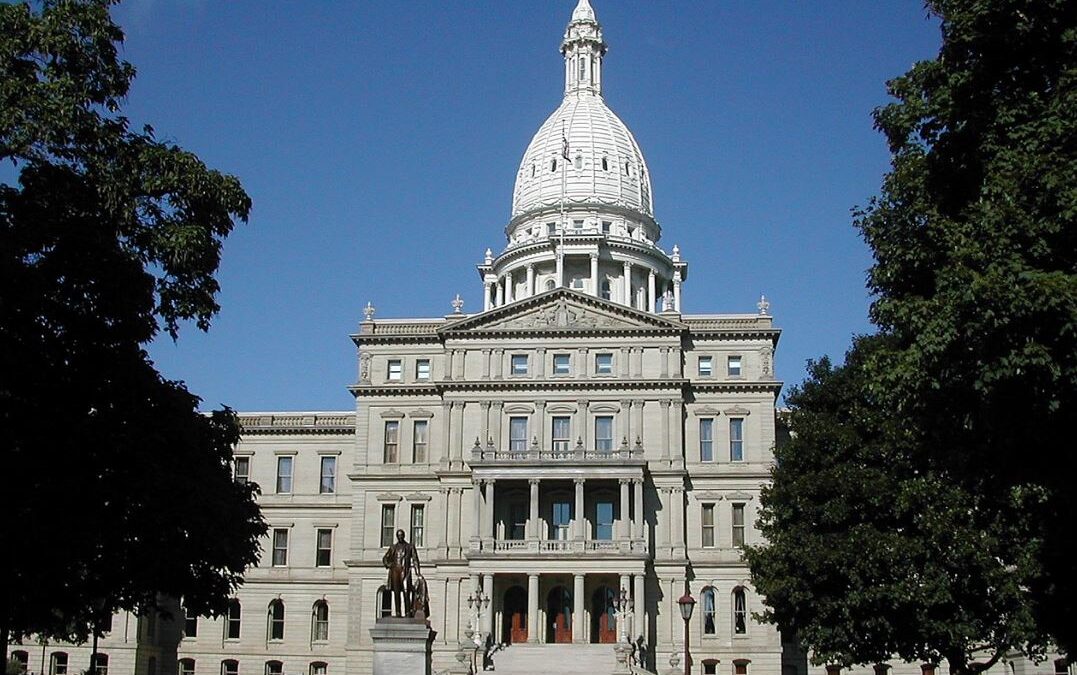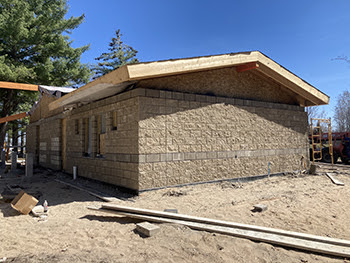
Whitmer Makes Appointments to Boards and Commissions

FOR IMMEDIATE RELEASE April 27, 2023 Contact: [email protected]
Governor Whitmer Makes Appointments to Boards and Commissions
LANSING, Mich. — Today, Governor Gretchen Whitmer announced the following appointments to the Michigan Strategic Fund Board of Directors and Michigan Indigent Defense Commission.
Michigan Strategic Fund Board of Directors
Randy Thelen, of Grand Rapids, is the president and CEO of The Right Place, Inc. He joined The Right Place in 2021, after serving as senior vice president of economic development at the Downtown Denver Partnership. He holds a Bachelor of Arts in Economics from Alma College and a Master of Arts in Applied Economics from Binghamton University. Previously, he also held leadership positions at the Greater Omaha Economic Development Partnership, the Michigan Economic Development Corporation, and Lakeshore Advantage. Mr. Thelen is appointed to represent a member submitted by the Senate Majority Leader representing individuals within the private sector with experience in private equity or venture capital investments, commercial lending, or commercialization of technology, for a term commencing April 27, 2023, and expiring July 31, 2026. He is succeeding Ronald Beebe whose term has expired.
Leon Richardson, of Bloomfield Hills, is the founder, president, and CEO of the Chemico Group. For over 30 years, he has led one of the largest minority-owned chemical management and distribution companies in the United States. He is a United States Marine Corps veteran, having served as a non-commissioned officer. He attended the University of Maryland and the Detroit College of Business. Mr. Richardson is appointed to represent a member submitted by the Speaker of the House of Representatives representing individuals within the private sector with experience in private equity or venture capital investments, for a term commencing April 27, 2023, and expiring July 31, 2026. He is succeeding Paul Gentilozzi whose term has expired.
The Michigan Strategic Fund Board of Directors was created by Executive Order No. 2019-13. The Board’s responsibilities include approval of the use of private activity bonds, authorizing the submittal by local governments of Community Development Block Grant applications, and approval of Tool and Die Renaissance Recovery Zones.
These appointments are subject to the advice and consent of the Senate.
Michigan Indigent Defense Commission
Thomas Adams, of Detroit, is the president of Chance For Life Organization. He received his Bachelor of Science in Biology from Tuskegee University. Mr. Adams is appointed to represent the general public for a term commencing April 27, 2023, and expiring April 1, 2027. He succeeds Nathaniel Crampton whose term has expired.
Tracey Brame, of Grand Rapids, is a licensed attorney and associate dean of experiential learning at Western Michigan University Thomas M. Cooley Law School. She received her Bachelor of Arts in Political Science and her Juris Doctor from the University of Michigan. Ms. Brame is reappointed to represent members submitted by the Chief Justice of the Michigan Supreme Court, for a term commencing April 27, 2023, and expiring April 1, 2027.
Andrew DeLeeuw, of Manchester, is the interim deputy county administrator for Washtenaw County. He earned his Bachelor of Arts in Philosophy and English from Michigan State University and his Master of Public Policy from the University of Michigan Gerald R. Ford School of Public Policy. Mr. DeLeeuw is reappointed to represent the Michigan Association of Counties, for a term commencing April 27, 2023, and expiring April 7, 2027.
James Krizan, of Allen Park, is city manager for the City of Lincoln Park. He received his Bachelor of Social Work and his Master of Public Administration from Eastern Michigan University. Mr. Krizan is reappointed to represent the Michigan Municipal League, for a term commencing April 27, 2023, and expiring April 1, 2027.
Margaret McAvoy, of Owosso, is the president and CEO of McAvoy & Associates Consulting. She received her Bachelor of Arts in Sociology from Saginaw Valley State University. Ms. McAvoy is reappointed to represent the Michigan Association of Counties, for a term commencing April 27, 2023, and expiring April 1, 2027.
Christine Green, of Ann Arbor, is partner and president of Green, Green, Adams and Kent Law Firm. She received her Bachelor of Arts in General Studies as well as her Juris Doctor from the University of Michigan. Ms. Green is reappointed to represent the State Budget Office, for a term commencing April 27, 2023, and expiring April 1, 2027.
The Michigan Indigent Defense Commission was created as a result of efforts to improve legal representation for indigent criminal defendants. The Commission develops and oversees the implementation, enforcement, and modification of minimum standards, rules, and procedures to ensure that indigent criminal defense services providing effective assistance of counsel are delivered to all indigent adults in this state consistent with the safeguards of the United States Constitution, the State Constitution of 1963, and with the Michigan Indigent Defense Commission Act.
These appointments are not subject to the advice and consent of the Senate. |






 Want to join thousands of other Michiganders in a good cause? Plant a tree this spring!
Want to join thousands of other Michiganders in a good cause? Plant a tree this spring! Alpha Kappa Alpha Sorority, Inc. members have been busy this month working on community-focused projects that support their “Enhance Our Environment” initiative. Three Michigan chapters around the state are collaborating with educational and government organizations. Among these collaborators is Project Learning Tree, a pre-K-12 environmental education program sponsored by the DNR. Together, they are galvanizing sorority members to make positive impacts on the environment while creating an inspiring ripple effect in their communities.
Alpha Kappa Alpha Sorority, Inc. members have been busy this month working on community-focused projects that support their “Enhance Our Environment” initiative. Three Michigan chapters around the state are collaborating with educational and government organizations. Among these collaborators is Project Learning Tree, a pre-K-12 environmental education program sponsored by the DNR. Together, they are galvanizing sorority members to make positive impacts on the environment while creating an inspiring ripple effect in their communities.
 Attendee Angel Squalls, an Alpha Kappa Alpha Sorority, Inc. committee member, said, “I am a firm believer that the first step to enhancing our environment is through education and outreach, as you can’t enhance what you are unaware needs improvement. We look forward to taking back what we learned and implementing it among our community and upcoming tree plantings. Accolades to our Michigan Project Learning Tree coordinator Andrea Stay and Project W.I.L.D. facilitator Natalie Elkins for putting on a great educational workshop and Huron Pines AmeriCorps members for their assistance.”
Attendee Angel Squalls, an Alpha Kappa Alpha Sorority, Inc. committee member, said, “I am a firm believer that the first step to enhancing our environment is through education and outreach, as you can’t enhance what you are unaware needs improvement. We look forward to taking back what we learned and implementing it among our community and upcoming tree plantings. Accolades to our Michigan Project Learning Tree coordinator Andrea Stay and Project W.I.L.D. facilitator Natalie Elkins for putting on a great educational workshop and Huron Pines AmeriCorps members for their assistance.”
 Did you know? White oak trees have water-resistant properties that make them great for building boats and wine barrels. Redbud trees have tiny pink flowers that bloom before the trees even grow leaves. The mighty eastern white pine, Michigan’s state tree, can grow over 100 feet tall! Intrigued? Discover more facts about Michigan’s trees on our
Did you know? White oak trees have water-resistant properties that make them great for building boats and wine barrels. Redbud trees have tiny pink flowers that bloom before the trees even grow leaves. The mighty eastern white pine, Michigan’s state tree, can grow over 100 feet tall! Intrigued? Discover more facts about Michigan’s trees on our  Whether you’re out on a trail in the woods, driving on a state forest road or in your own urban backyard, you can help keep Michigan’s trees healthy by using your powers of observation.
Whether you’re out on a trail in the woods, driving on a state forest road or in your own urban backyard, you can help keep Michigan’s trees healthy by using your powers of observation. Michiganders also should be alert for signs and symptoms of the Asian longhorned beetle and hemlock wooly adelgid. The Asian longhorned beetle is an invader that kills hardwood trees, leaving telltale pencil-shaped holes. It has been found in nearby states. On the west side of the Lower Peninsula, folks need to be on the lookout for tiny cottony spots at the base of hemlock needles, a sign of the tiny, sap-sucking hemlock woolly adelgid insect.
Michiganders also should be alert for signs and symptoms of the Asian longhorned beetle and hemlock wooly adelgid. The Asian longhorned beetle is an invader that kills hardwood trees, leaving telltale pencil-shaped holes. It has been found in nearby states. On the west side of the Lower Peninsula, folks need to be on the lookout for tiny cottony spots at the base of hemlock needles, a sign of the tiny, sap-sucking hemlock woolly adelgid insect.


 Thanks to $250 million in federal relief COVID-19 funding made possible through the American Rescue Plan Act of 2021, several of the Michigan Department of Natural Resources’ planned improvement projects at state parks are getting underway this spring and summer.
Thanks to $250 million in federal relief COVID-19 funding made possible through the American Rescue Plan Act of 2021, several of the Michigan Department of Natural Resources’ planned improvement projects at state parks are getting underway this spring and summer.